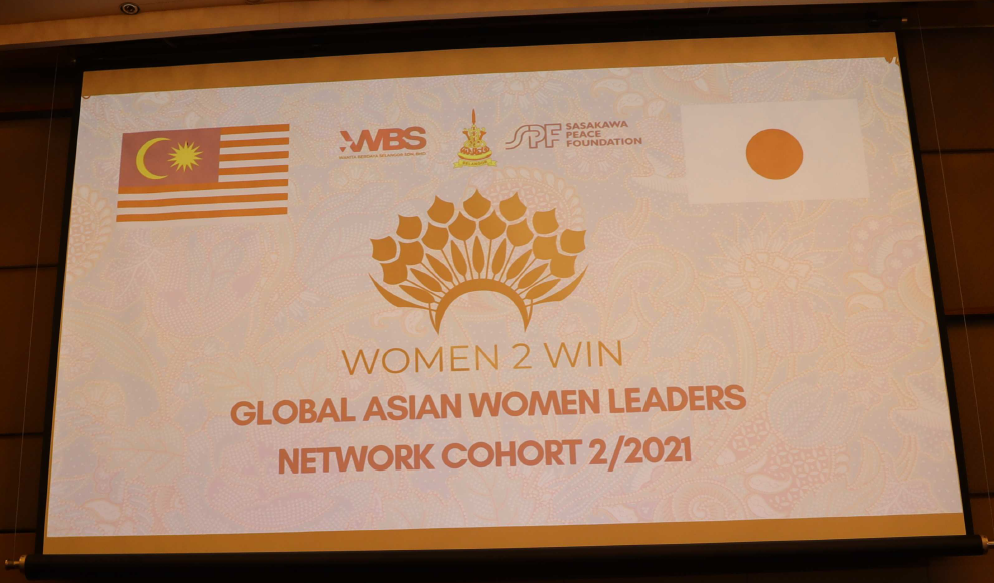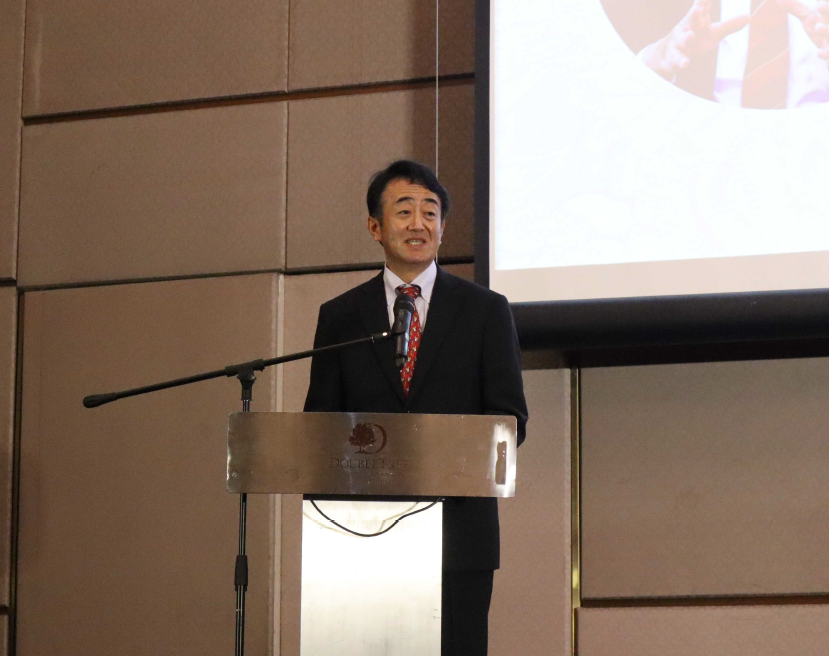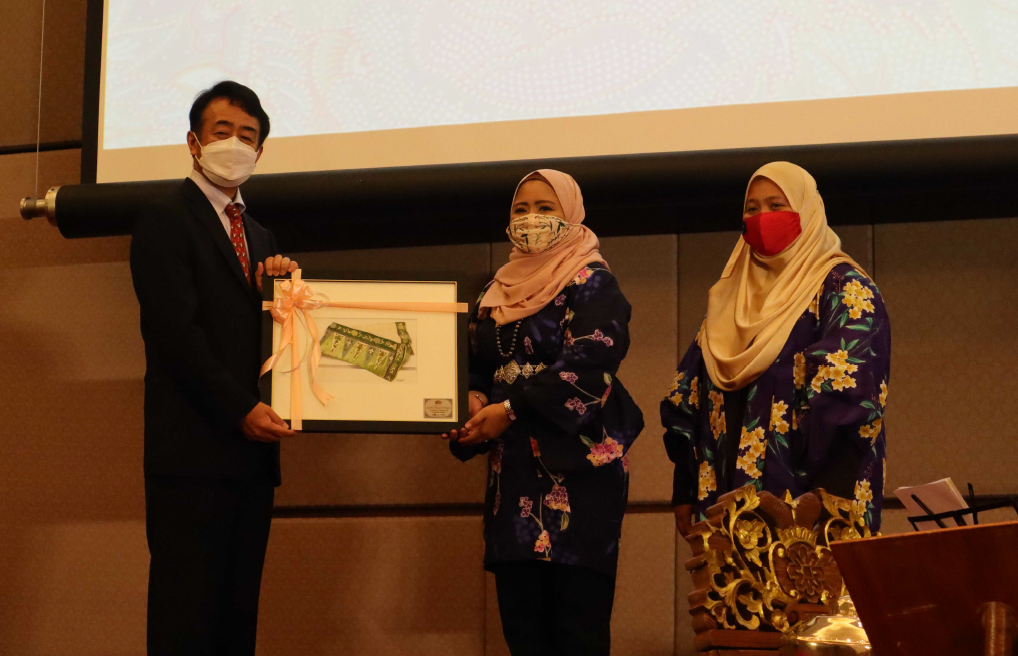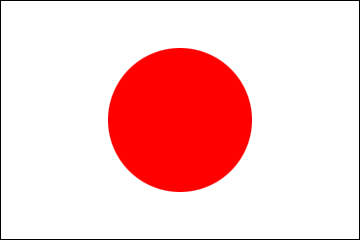Ambassador Takahashi attended the launching ceremony of the Global Asian Women Leaders Network Program
2022/1/28
On 28 January 2022, Ambassador Takahashi attended the launching ceremony of the Global Asian Women Leaders Network Program. On the ceremony, Ambassador Takahashi made his congratulatory remarks as follows.
+++++++
Yang Berhomat Dr. Siti Mariah, Chairman of Wanita Berdaya Selangor,
Dr. Atsushi Sunami, President of Sasakawa Peace Foundation,
Ms. Akiko Horiba, Senior Program Officer, Sasakawa Peace Foundation,
Distinguished Guests, Ladies and Gentlemen,
I am honored to be invited to the launching ceremony of the physical Workshop of the Global Asian Women Leaders Network Program today. I commend effort of the secretariat to organize this workshop in spite of difficulty under COVID-19 pandemic. The purpose of this program is not only to create an international network among the next generation of women leaders, but also to deepen their knowledge on political and economic affairs and to share experiences on management. I hope all the participants of this program will be empowered to become women leaders of the next generation, not only in Malaysia and Japan, but also all over Asia and the world.
The Sasakawa Peace Foundation, the co-organizer of this program, has made various efforts to empower women all over Asia. As far as Malaysia is concerned, invitation to Minister Zuraida Kamaruddin, the then Minister of Housing and Local Government, to visit Japan in the summer of 2019, and her lecture on women’s role in Malaysia in front of Japanese audience was an important event. This visit helped to deepen the understanding between Japan and Malaysia on women’s empowerment.
There are lots of thing that government can do, but there are more things that private sector can do. As the Ambassador of Japan to Malaysia, I am delighted to see that this program, jointly organized and implemented by the Sasakawa Peace Foundation and Wanita Berdaya Selangor, will further enhance Japan-Malaysia relations as a good example of cooperation between the private sectors of both countries. I look forward to more active collaborations between the two organizations.
Ladies and Gentlemen,
The Japanese Government has provided various cooperation program to Malaysia, to create an environment where women can play a more active role in the society. For example, the Japan International Cooperation Agency (JICA) provides a training course titled “Support for Employment of Elderly and Women" since 2018. This project is to share Japan's experience on effective systems to support employment and income generation for the elderly and women in Malaysia. Around 40 people from Malaysia have participated in this course so far. In addition, we are now planning to conduct another JICA training course on "Catalyzing Women Entrepreneurship." This course will allow participants to study Japanese good practice and share knowledge on policies, including subsidies, to support women entrepreneurs.
Let me talk a bit about Japan’s domestic policy. Of course, some efforts are going on in Japan to promote the activities of women. In 2016, the Law for the Promotion of Women’s Activities was approved by the parliament. The validity of the law is for 10 years and based on this legislation, Government is pushing, for example, companies to set action plans and numerical targets for female recruitment. To create an environment where both men and women can demonstrate their abilities and continue to work, we expanded childcare support systems such as expansion of childcare leave allowance and duration, and promotion of childcare leave for men.
On the international front, the Government of Japan has established a forum called “WAW!" in 2014. Every year since then, top leaders from all over the world who are active in the field of women empowerment get together in Tokyo and discuss initiatives to promote the advancement of women as well as to promote the sharing of good practices. Dato’ Rohana Rozhan, the former CEO of ASTRO, attended this forum as a panelist from Malaysia in its first main session in 2014.
Ladies and Gentlemen,
Many Japanese women are active not only in Japan but also in the United Nations and other international organizations. For example, in the field of disarmament and disaster prevention, which Japan places great importance on, heads of UN bodies in charge are Japanese women. Ms. Izumi Nakamitsu is the Under Secretary General on disarmament, and Ms. Mami Mizutori is the head of the International Strategy for Disaster Reduction.
The most famous Japanese lady in the UN System is late Madame Sadako Ogata, UN High Commissioner for Refugees in 1990s. I worked with her in Afghanistan and on Human Security for a long time. She was indeed a pioneer of Japanese women in the international organizations. Two ladies I just mentioned are very much influenced by Madame Ogata to be the UN senior staff. This is one example how pioneers contribute to creating followers. I hope today’s program can also work as a catalyst to create such pioneers and followers in various fields.
Ladies and gentlemen,
This year marks the 40th anniversary of the Look East Policy, LEP. Since it started in 1982, some 26,000 people (9,000 to study, 17,000 under JICA training) have studied in Japan under the Look East Policy. Many of them now hold leading positions in various fields, both in the Federal Government and the business sector. These people are invaluable asset for the two countries. In the Federal Government, 13 out of 27 Secretaries-General of various Ministries and government agencies are those who studied in Japan under the Look East Policy, and I am happy to mention that two of these are women.
We would like to work with the Malaysian people to carry out LEP-related projects throughout the year to celebrate this anniversary by reaffirming the past successes under the LEP, as well as by discussing the future direction of a new LEP. I am sure that women’s empowerment will have impact on how next LEP looks like. The Embassy is currently seeking proposals for events to commemorate the 40th anniversary through website and facebook, and we would be delighted if you could think of hosting or organizing LEP-related events to celebrate the 40th anniversary with us.
In concluding, I wish all of you here to have a fruitful workshop with a good result.
Thank you, Arigato and Terima Kasih.



+++++++
Yang Berhomat Dr. Siti Mariah, Chairman of Wanita Berdaya Selangor,
Dr. Atsushi Sunami, President of Sasakawa Peace Foundation,
Ms. Akiko Horiba, Senior Program Officer, Sasakawa Peace Foundation,
Distinguished Guests, Ladies and Gentlemen,
I am honored to be invited to the launching ceremony of the physical Workshop of the Global Asian Women Leaders Network Program today. I commend effort of the secretariat to organize this workshop in spite of difficulty under COVID-19 pandemic. The purpose of this program is not only to create an international network among the next generation of women leaders, but also to deepen their knowledge on political and economic affairs and to share experiences on management. I hope all the participants of this program will be empowered to become women leaders of the next generation, not only in Malaysia and Japan, but also all over Asia and the world.
The Sasakawa Peace Foundation, the co-organizer of this program, has made various efforts to empower women all over Asia. As far as Malaysia is concerned, invitation to Minister Zuraida Kamaruddin, the then Minister of Housing and Local Government, to visit Japan in the summer of 2019, and her lecture on women’s role in Malaysia in front of Japanese audience was an important event. This visit helped to deepen the understanding between Japan and Malaysia on women’s empowerment.
There are lots of thing that government can do, but there are more things that private sector can do. As the Ambassador of Japan to Malaysia, I am delighted to see that this program, jointly organized and implemented by the Sasakawa Peace Foundation and Wanita Berdaya Selangor, will further enhance Japan-Malaysia relations as a good example of cooperation between the private sectors of both countries. I look forward to more active collaborations between the two organizations.
Ladies and Gentlemen,
The Japanese Government has provided various cooperation program to Malaysia, to create an environment where women can play a more active role in the society. For example, the Japan International Cooperation Agency (JICA) provides a training course titled “Support for Employment of Elderly and Women" since 2018. This project is to share Japan's experience on effective systems to support employment and income generation for the elderly and women in Malaysia. Around 40 people from Malaysia have participated in this course so far. In addition, we are now planning to conduct another JICA training course on "Catalyzing Women Entrepreneurship." This course will allow participants to study Japanese good practice and share knowledge on policies, including subsidies, to support women entrepreneurs.
Let me talk a bit about Japan’s domestic policy. Of course, some efforts are going on in Japan to promote the activities of women. In 2016, the Law for the Promotion of Women’s Activities was approved by the parliament. The validity of the law is for 10 years and based on this legislation, Government is pushing, for example, companies to set action plans and numerical targets for female recruitment. To create an environment where both men and women can demonstrate their abilities and continue to work, we expanded childcare support systems such as expansion of childcare leave allowance and duration, and promotion of childcare leave for men.
On the international front, the Government of Japan has established a forum called “WAW!" in 2014. Every year since then, top leaders from all over the world who are active in the field of women empowerment get together in Tokyo and discuss initiatives to promote the advancement of women as well as to promote the sharing of good practices. Dato’ Rohana Rozhan, the former CEO of ASTRO, attended this forum as a panelist from Malaysia in its first main session in 2014.
Ladies and Gentlemen,
Many Japanese women are active not only in Japan but also in the United Nations and other international organizations. For example, in the field of disarmament and disaster prevention, which Japan places great importance on, heads of UN bodies in charge are Japanese women. Ms. Izumi Nakamitsu is the Under Secretary General on disarmament, and Ms. Mami Mizutori is the head of the International Strategy for Disaster Reduction.
The most famous Japanese lady in the UN System is late Madame Sadako Ogata, UN High Commissioner for Refugees in 1990s. I worked with her in Afghanistan and on Human Security for a long time. She was indeed a pioneer of Japanese women in the international organizations. Two ladies I just mentioned are very much influenced by Madame Ogata to be the UN senior staff. This is one example how pioneers contribute to creating followers. I hope today’s program can also work as a catalyst to create such pioneers and followers in various fields.
Ladies and gentlemen,
This year marks the 40th anniversary of the Look East Policy, LEP. Since it started in 1982, some 26,000 people (9,000 to study, 17,000 under JICA training) have studied in Japan under the Look East Policy. Many of them now hold leading positions in various fields, both in the Federal Government and the business sector. These people are invaluable asset for the two countries. In the Federal Government, 13 out of 27 Secretaries-General of various Ministries and government agencies are those who studied in Japan under the Look East Policy, and I am happy to mention that two of these are women.
We would like to work with the Malaysian people to carry out LEP-related projects throughout the year to celebrate this anniversary by reaffirming the past successes under the LEP, as well as by discussing the future direction of a new LEP. I am sure that women’s empowerment will have impact on how next LEP looks like. The Embassy is currently seeking proposals for events to commemorate the 40th anniversary through website and facebook, and we would be delighted if you could think of hosting or organizing LEP-related events to celebrate the 40th anniversary with us.
In concluding, I wish all of you here to have a fruitful workshop with a good result.
Thank you, Arigato and Terima Kasih.



